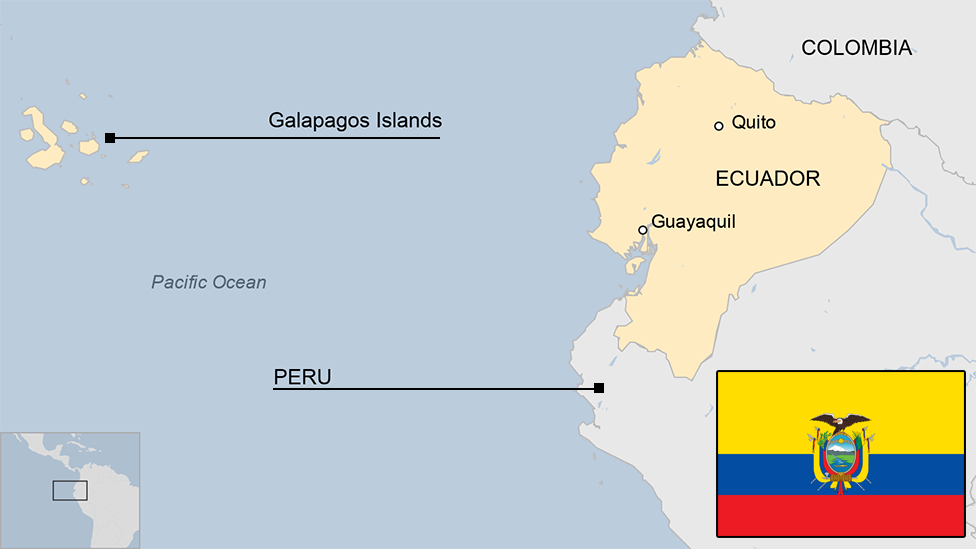Ecuador earthquake: Deaths rise to 272
- Published
More than 200 people are now known to have died in the earthquake
At least 272 people have been confirmed dead and more than 1,500 people injured after Ecuador was hit by its most powerful earthquake in decades.
Some 10,000 troops and 3,500 police are being deployed in the affected areas, as rescue operations continue.
The magnitude-7.8 quake struck on Saturday evening.
Coastal areas in the north-west were closest to the epicentre and officials say the death toll is likely to rise as information begins to come in.
Ecuador's President Rafael Correa has cut short a visit to Italy to deal with the crisis.
He has declared a state of emergency and said the priority is finding survivors.
"Everything can be rebuilt, but lives cannot be recovered, and that's what hurts the most," he said.
Ecuador's Vice-President Jorge Glas, visiting one of the worst-hit cities, Manta, met a resident who pleaded for people trapped under rubble.
"We cannot go in with heavy machinery because it can be tragic for the wounded," Mr Glas told him.
Helicopters and buses are ferrying troops north but have been hampered by landslides.
In some areas people are using their bare hands to try to dig out survivors.
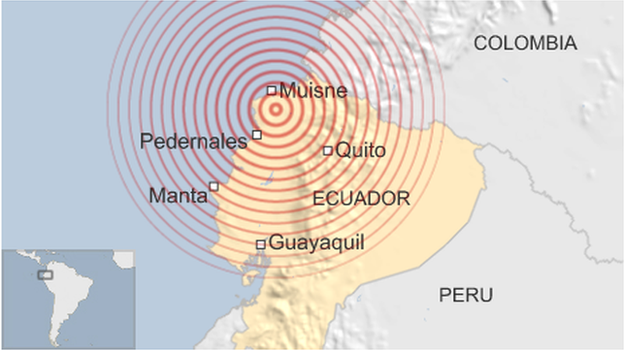
Food and other essentials has been handed out and international aid is also beginning to arrive, with the first coming from Venezuela and Mexico.
Colombia announced it was sending rescue teams with search dogs, and its navy would carry water to the affected area.
Gabriel Alcivar, mayor of Pedernales, close to the epicentre, said the "entire town" had been flattened.
"We're trying to do the most we can but there's almost nothing we can do," he added, warning that looting had broken out.
Widespread damage is reported, with a bridge destroyed as far south as Guayaquil about 300km (190 miles) away.
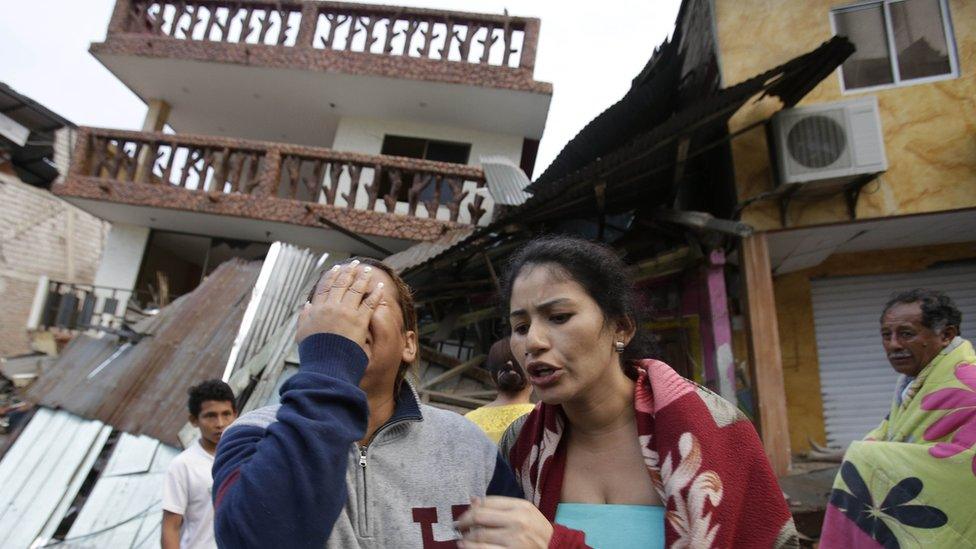
Rescue efforts have begun but there are fears more victims will be found
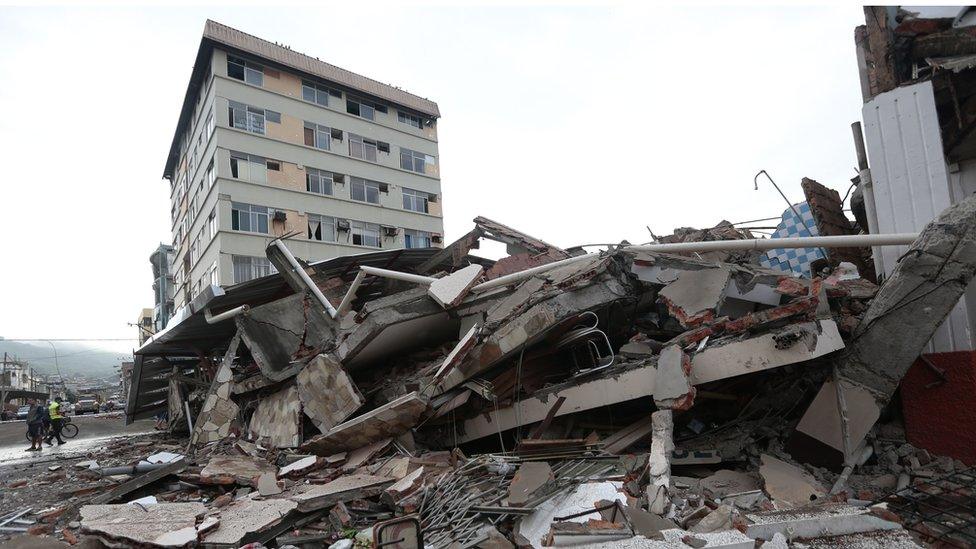
Some buildings were reduced to rubble by the quake
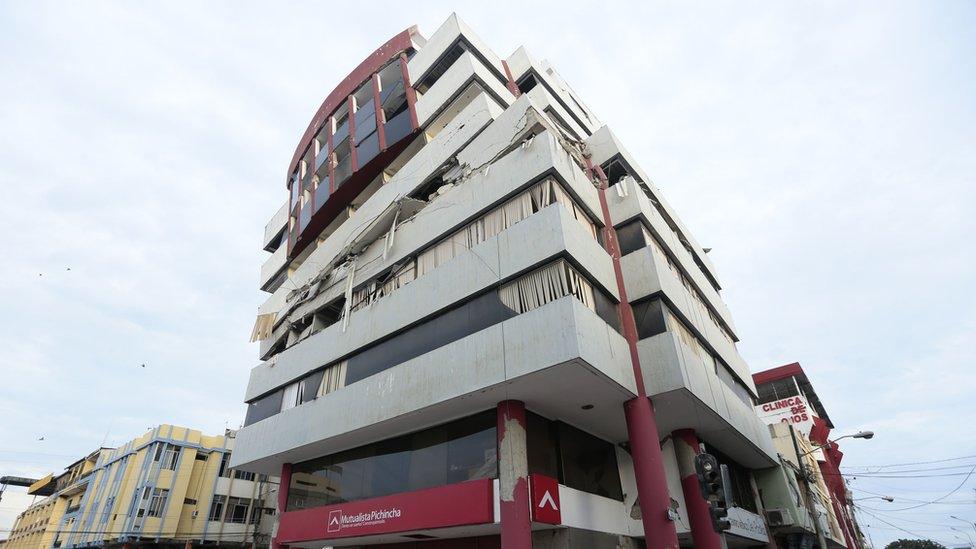
Others were badly damaged
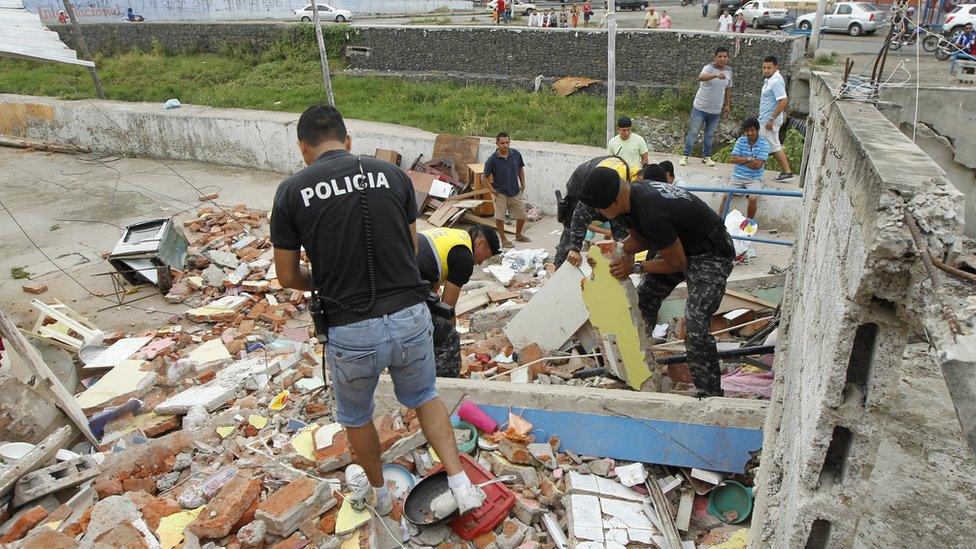
Police and army troops have been deployed to help relief efforts
In Manta, one woman said: "The third floor collapsed on top of us. They are all there, my family, my sister, my children. My God, may the help arrive."
Cristian Ibarra Santillan was in the capital Quito when the quake struck.
"There had been some small tremors going on for about two or three months and I thought it was one of those but after about 20, 30 seconds it started to get really strong," he told the BBC.
"And I grabbed my dog and I hid under the table. But then I realised that it wasn't going away so I just ran with him outside."
Stephan Kuffner, who lives in Quito, says he felt the vibrations for minutes after the quake struck
A man was killed when his car was crushed beneath a collapsed bridge in Guayaquil
The quake is Ecuador's largest since 1979. More than 130 aftershocks have followed.
The US Geological Survey, external said the earthquake struck at a fairly shallow depth of 19.2km (11.9 miles), about 27km from Muisne in a sparsely populated area.
David Rothery, a professor of geosciences at The Open University, said Ecuador's quake was about six times as powerful as the earthquake that struck southern Japan on Saturday.
The quake was also felt in Colombia, where patients in a clinic in the city of Cali were evacuated from the building.

Analysis: Jonathan Amos, BBC science correspondent
Ecuador is used to earthquakes. There have been seven magnitude-7.0 or greater events within 250km of this latest tremor since 1900. And some of these have resulted in very considerable loss of life, not just from the shaking but also from tsunami waves.
The country sits on the so-called "Ring of Fire" - the arc of high seismic activity that extends right around the Pacific basin. At its location, Ecuador fronts the boundary between the Nazca and South American tectonic plates.
These are vast slabs of the Earth's surface that grind past each other at a rate of about 65mm per year. The Nazca plate, which makes up the Pacific Ocean floor in this region, is being pulled down (subducted) and under the South American coast.
It is a process that has helped build the Andes and Ecuador's many volcanoes, including the mighty Chimborazo.
Models that try to forecast the likely casualty numbers from the nature of the quake and local building construction methods indicate this event could be very serious, with the number of deaths running into the hundreds.

Are you in Ecuador? Have you been affected by the earthquake? Email haveyoursay@bbc.co.uk, external with your experience.
Please include a contact number if you are willing to speak to a BBC journalist. You can contact us in the following ways:
Whatsapp: +44 7525 900971
Send pictures/video to yourpics@bbc.co.uk, external
Tweet: @BBC_HaveYourSay, external
Send an SMS or MMS to 61124 or +44 7624 800 100
- Published13 August 2014
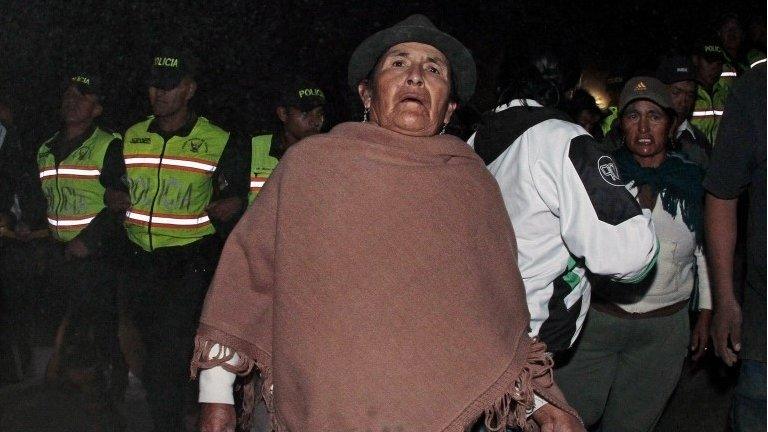
- Published11 May 2011
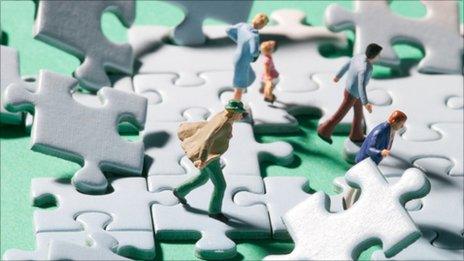
- Published15 January 2024
